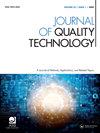多传感器预测的自适应传感器选择框架
IF 2.2
2区 工程技术
Q2 ENGINEERING, INDUSTRIAL
引用次数: 5
摘要
传感器技术的最新进展使得同时使用多个传感器监测系统的退化成为可能。因此,人们提出了许多基于神经网络的预测模型,将观察到的多个传感器信号作为输入,并估计系统的退化状态或故障时间。虽然这些模型已经取得了很好的预测效果,但仍然难以解释提取的特征,并且模型通常以黑盒方式使用,仅提供最终结果。在本研究中,提出了一种新的传感器选择框架,通过自适应决定当前使用哪些传感器来增强剩余使用寿命预测,来解决这一挑战。本工作的贡献总结如下:(1)具有通用性,可以附加到各种现有的基于神经网络的预测模型;(2)以统一的方式进行训练,以同时优化传感器选择和预测精度;(3)通过解释不同传感器对单个系统最终剩余使用寿命预测的贡献,提高模型的可解释性;(4)引入了几种正则化技术来保证训练过程的稳定性。我们通过一系列关于飞机燃气涡轮发动机退化的数值研究来验证所提出的框架。本文章由计算机程序翻译,如有差异,请以英文原文为准。
An adaptive sensor selection framework for multisensor prognostics
Abstract Recent advances in sensor technology have made it possible to monitor the degradation of a system using multiple sensors simultaneously. Accordingly, many neural network-based prognostic models have been proposed to use observed multiple sensor signals as inputs and estimate the degradation status or failure time of the system. Although these models have achieved promising prognostic performance, it is still difficult to interpret the extracted features, and the models are often used in a black-box manner providing only the final results. In this study, a novel sensor selection framework is proposed to address this challenge by adaptively deciding which sensors to use at the moment to enhance remaining useful life prediction. The contributions of this work are summarized as follows: (1) being generic and can be attached to a variety of existing neural network-based prognostic models; (2) being trained in a unified manner to optimize both the sensor selection and prognostic accuracies simultaneously; (3) improving the interpretability of the model by explaining how different sensors contribute to the final remaining useful life prediction of individual systems over time; and (4) introducing several regularization techniques to ensure the stability of the training process. We validate the proposed framework using a series of numerical studies on the degradation of aircraft gas turbine engines.
求助全文
通过发布文献求助,成功后即可免费获取论文全文。
去求助
来源期刊

Journal of Quality Technology
管理科学-工程:工业
CiteScore
5.20
自引率
4.00%
发文量
23
审稿时长
>12 weeks
期刊介绍:
The objective of Journal of Quality Technology is to contribute to the technical advancement of the field of quality technology by publishing papers that emphasize the practical applicability of new techniques, instructive examples of the operation of existing techniques and results of historical researches. Expository, review, and tutorial papers are also acceptable if they are written in a style suitable for practicing engineers.
Sample our Mathematics & Statistics journals, sign in here to start your FREE access for 14 days
 求助内容:
求助内容: 应助结果提醒方式:
应助结果提醒方式:


